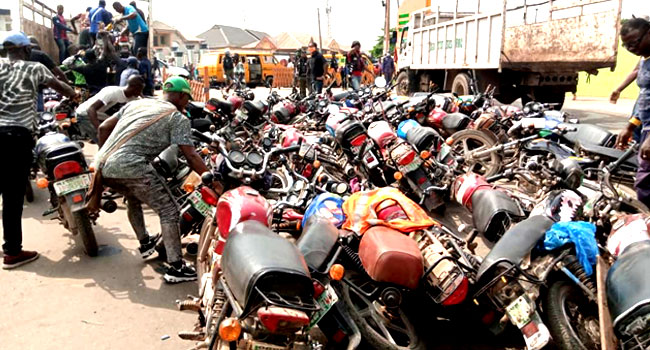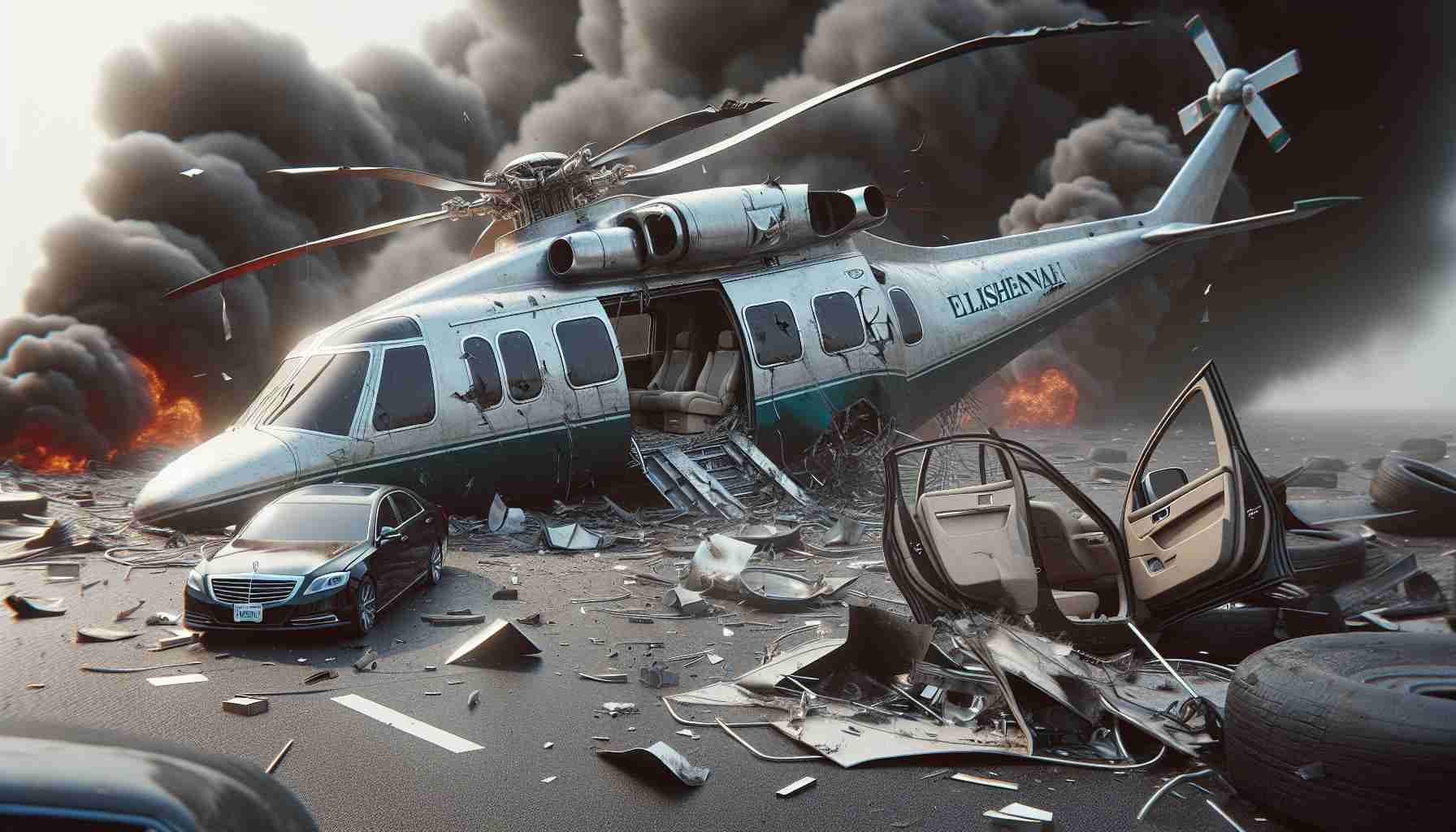Why pregnant women should avoid cats –Expert
A former Deputy Vice-Chancellor (Research, Innovation and Strategic Partnerships), at the University of Ibadan, Prof Olanike Adeyemo, tells OLUFEMI OLANIYI about her career and the ongoing strike by the Academic Staff Union of Universities
Apart from being an academic, what other things do you do?
In the order of importance, I am a mother, I’m a wife and I take anything that has to do with my family seriously. I have siblings and I have a mum but my dad is late. Those are some of the things that define me. Also, I am a researcher and a lecturer as well as an administrator. Those are the three things we do in academia. Some think because there is a strike, lecturers are not working but I am actively researching now. Even when I don’t teach, I do some other things.
What is your field of study?
I trained as a veterinarian but I have evolved, although I still offer services at the teaching hospital as an aquatic veterinarian. In Veterinary Medicine we also have disciplines. For research, I teach at the Department of Veterinary Public Health and Preventive Medicine and I research what we call “one health.” Like every other thing, research evolves, and so I parted with environmental health because that was what I did my PhD on. I looked at the impact of lead in fuel and at that time, other countries had banned lead in petrol but we were still using it and I wanted to look at the impact of that on the environment. When you emit all these into the atmosphere and it rains, it runs into rivers and most of our pollutants go into rivers. I looked at the lead level in rivers in Ibadan. I looked at the impact on fish and I was able to see that what goes round comes round.
COVID-19 has brought that to us that we all live in the same state. You can not separate human health from animal health and environmental health and that is what we veterinarians call “one health”. That is the domain of my research.
What did you discover to be the impact of lead on aquatic animals?
Of course, there are a lot. Lead causes cancer and other things we saw when I did my research. The impact is not only on animals. We eat fish and we accumulate this in our bodies. When you take a fish that has been exposed to lead, some of those things will be in its flesh and liver and when you eat it, you are also being exposed to lead. So, whatever we push into the environment eventually comes back to us because we are higher animals but it takes longer for those effects to manifest in us because of our body mass and all that.
Let me give you a quick example. Have you wondered why there is an upsurge in cases of kidney failure? Between 15 and 20 years ago, it was not this bad. But when you look at celebrities now, you will discover that kidney problems have increased. The celebrities are the ones we know. Many unknown individuals are down or have died as a result of kidney failure. And when you look at it, it is being caused by what we eat or what we are being exposed to. It is difficult to ascribe a cause to this illness because some of those things take years unlike when you shoot somebody and you see on the spot that the bullet is responsible for the person’s death. If somebody has hepatitis now, the person won’t have liver cancer the same day. It will take a while before it manifests. You are aware that there was a time when it was said that some people used detergent to ferment fufu. That kind of thing will not kill somebody in a day.
You have spoken a lot about human health. Why did you choose to study Veterinary Medicine in the first place?
I didn’t choose Vet Medicine. You know how it is with the Joint Admissions and Matriculation Board and during my time, there were few professions parents wanted their children to go into. Parents wanted their children to become lawyers, doctors, and engineers during my time. If you were good at science subjects, they wanted you to become a doctor. When I took the University Matriculation Examination (now Unified Tertiary Matriculation Examination), my parents chose Medicine but I did not meet the cutoff mark. I later changed my choice of course of study. One of my dad’s friends, a professor of Veterinary Medicine, said he would have loved me to study Vet Medicine but he said it was too tough that I would not be able to cope. But that was a challenge to me and because he said I would not be able to cope, I said that was what I wanted and that was how I ended up in Veterinary Medicine.
I tell the younger ones now that they can be whatever they want to be and it is easier now to navigate. What you do may be different from your calling and you can only excel in the area where your passion is. I also always tell people not to force their children into any profession. Forcing children into professions we want is why we have so many doctors that are not empathetic. They are just there for the name and the money. That is why you go to hospitals and find doctors or nurses that are so mean to patients. But people who have passion for it do it with joy and they show empathy, make sacrifices, and don’t feel it as such. And nobody can excel in any profession they don’t have passion for. I found myself in Veterinary Medicine but I have evolved and I have a passion for it.
It is in every profession. If you do something grudgingly, you are not likely to put in your best. So, I will advise people not to do any job grudgingly. The Managing Director of First Bank, Sola Adeduntan, is my friend. He was a year ahead of me at vet school. He is a veterinarian and there is another one at Stanbic IBTC, who graduated from Agronomy Department here at UI. You should find your way to your place of passion than to stay grudgingly in a profession.
But do we have enough vet doctors in Nigeria?
I don’t think we have enough. We don’t. In my area now, we don’t have enough. Veterinarians work in many areas and they are also in charge of ensuring that what we eat is safe aside from those who work on poultry farms and those that treat dogs and all that. We don’t have enough as I said. Even though we don’t have enough to cover our abattoirs, it is better now than when I was an undergraduate. The system does not even retain the ones we have. What used to happen back then was if you went into Vet Medicine, you would not be allowed to change your course even if you wanted to change. But now, we no longer want people that are there grudgingly. If you come in there now and you say you want to change your course, we will allow you to go. We will rather have those who are genuinely interested than having a crowd of students who are there grudgingly. We have many veterinarians that are doing many other things in other areas now. But there are many areas, including disease prevention, where veterinarians work as I said earlier.
Some diseases can be transmitted from animals to humans and sex with animals appears to be on the increase now. Will this not lead to an upsurge in zoonotic diseases in human beings?
There are different ways of transmitting diseases. I headed the Oyo State Decontamination and Containment Team of the COVID-19 task force. I know that there are so many factors causing the transmission of diseases from animals to humans and one of them is urbanisation. We cut down trees and move into the bushes and we come in more contact with animals. Ecotourism is another factor. Human beings don’t respect boundaries. In some developed countries, some people keep exotic pets and among several ways is bestiality which can bring sexual transmission of diseases. For instance, many people don’t know that a pregnant woman should not be in contact with cats because cats transmit a disease that causes abortion.
How?
She should not be in contact with a cat’s litter if she is pregnant. It also causes some changes and makes babies defective. But a combination of many factors makes disease transmission occur. If your level of immunity is high, you may not be down when others who are in the same place as you are down. We also have some people who do not believe in vaccines and those ones are usually the weaklings.
Toxoplasmosis is usually harmless, but in rare cases, it can lead to serious problems and cats spread the parasite via their faeces. Women are more at risk if they get infected in pregnancy. Toxoplasmosis can cause miscarriage. If it spreads to a woman’s baby it can cause serious complications, especially if she caught it early in pregnancy.
Do you think we have a higher number of Nigerians already vaccinated against COVID-19?
No. I don’t have the statistics but I know we don’t have enough people vaccinated until we have herd immunity. When you have a pandemic like COVID-19, you must have at least 80 to 90 per cent of the people covered before you can say you have herd immunity. Do we even have enough vaccines to cover us? I don’t think so.
Apart from COVID, other zoonotic diseases are threatening human health. Will you say Nigeria is well prepared for them?
COVID is just one and until we do something about the issue of climate change and the way we interact with our environment, we will keep having all those issues. It is a global world now. Today, I can be in Nigeria, and before tomorrow morning I can be on another continent. People move now quickly to far places and people move diseases. Diseases don’t have legs.
Leadership is very important and followership is also important. The little efforts being made available, are we using them well? I was involved in the campaign against COVID and what is even expected of us to do, do we do them? I don’t think the authorities are doing as much as they should do but, they can do better and followers must also do better. If the UCH had the money that Stamford University had, they would probably have the same facilities. But we must ensure that the ones we have are adequately deployed. It is a complex issue.








